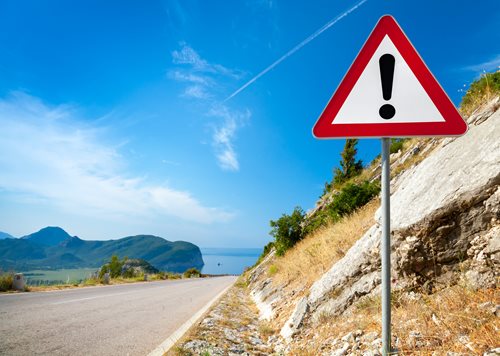
As Professional Drivers, it’s our responsibility to operate our vehicles safely down our highways. It’s also up to us to watch out for the motoring public. It’s a job that requires undivided attention. One lapse of judgment, or a moment of inattention, and things can get ugly real quick. We operate our vehicles in such a way to avoid such tragedies.
That’s why I’m always so confused when I’m traveling through a construction zone. Without exception as I travel the speed limit or less, four-wheelers and professional drivers will stack up behind me or blast past me like there is nothing going on at all. I understand we have skills that enable us to handle an 80,000 lb vehicle down the highway, but that doesn't keep us in a safety bubble where nothing bad can happen to us. Narrow lanes and heavy traffic are a recipe for disaster. Flying into this situation can end badly, not just for us, but for anyone else caught up in it.
See For Yourself
It’s a simple observation, but if you haven't already done this, it will certainly open your eyes. The next time you are in a construction zone, make sure you are in the proper lane and going the speed limit. In fairly short order, especially if it’s only one lane, you will start to see traffic back up behind you. Why is this? if you are doing the speed limit, and they are doing the speed limit, nobody should catch up to you. Yet cars and trucks will invariably stack up, and stack up, and stack up. This is another dangerous situation as well. One wrong move and these vehicles may end up creating a little mayhem. We've all seen that type of carnage.
Some will say the vehicle at the front is obstructing the flow of traffic, but obeying a posted speed limit isn't nearly as dangerous as going faster than the posted speed limit and then riding somebody's bumper. This is just begging for trouble. As a professional driver, don't we want to stay OUT of trouble? I know I do.
People's Lives Are at Stake
In 2017 there were 710 Work Zone crashes resulting in 799 fatalities, 132 of which were Work Zone Workers. Of those 710 work zone crashes, 216 were "truck involved" resulting in 265 fatalities. I do not know the answer, but ponder this for a second or two. How many of those could have been avoided if drivers had just slowed down and paid attention? I bet the number would be close to 100%. Is that few minutes gained really worth the risk of the loss of life? How about the financial loss? Tickets in Work Zones are typically double. I don't know about you, but I work too hard for my money to just throw it away.
So here are a few tips to make it safely through a work zone and possibly save yourself some trouble.
- Do the posted speed limit when safe to do so.
- Use the correct lane. When a lane is specified, there is a reason for it, whether it be lane width or weight issue, the lane specified should be the lane we use.
- Do the posted speed limit when safe to do so.
- Keep a safe distance
- Lastly, do the posted speed limit. (have you picked up the pattern yet?)
It really is just that simple. Be safe out there, and thanks for all you do.